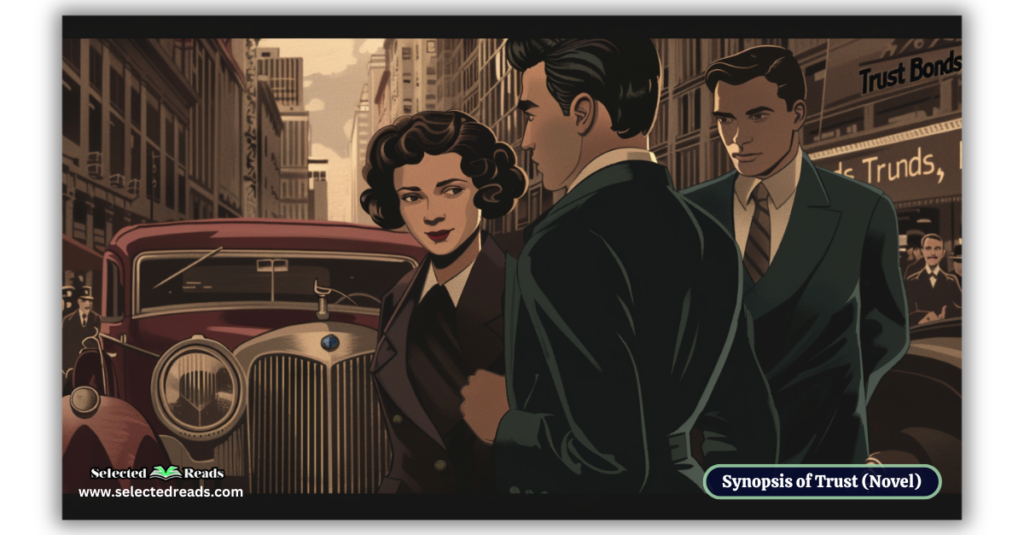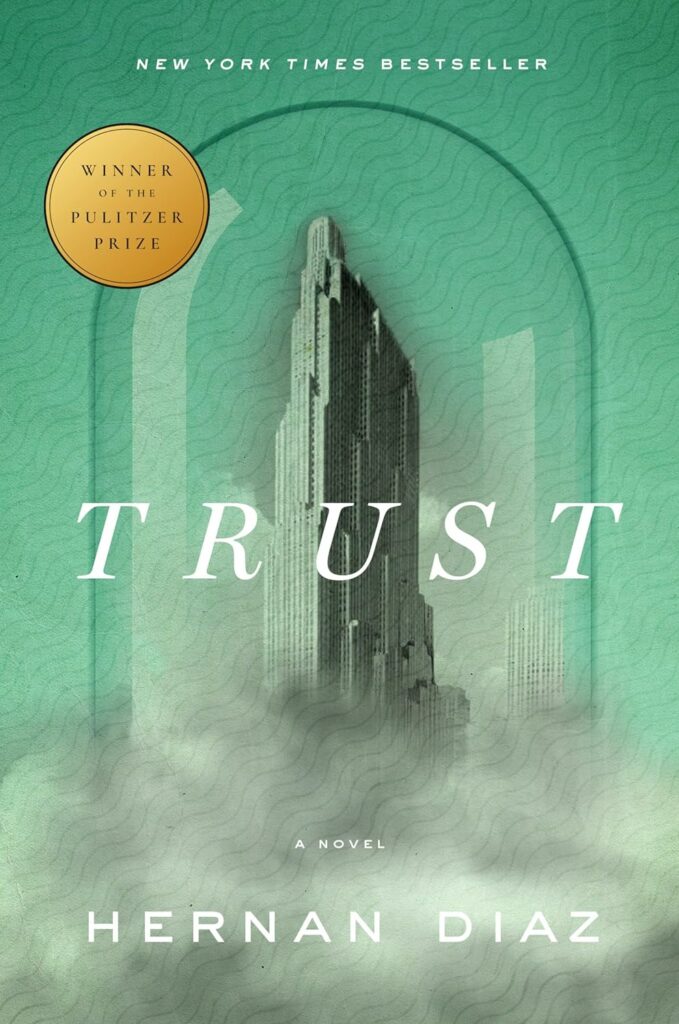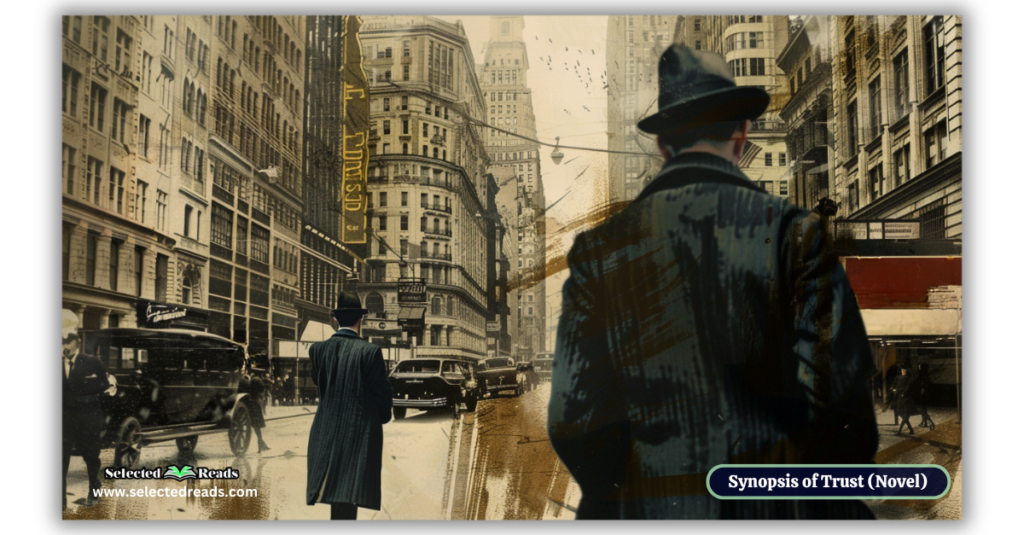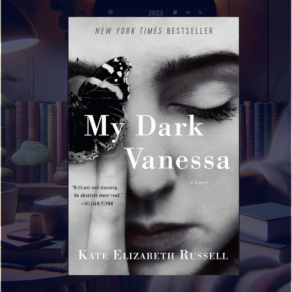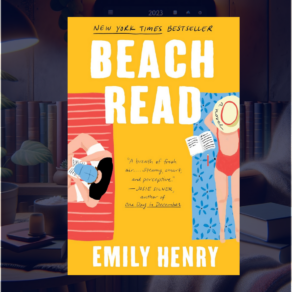Today’s discussion centers on “Trust” by Hernan Diaz, a Pulitzer Prize-winning novel acclaimed for its deep dive into themes of power, deception, and capitalism. Situated in the opulent and tumultuous backdrop of New York’s financial elite during the 1920s and the Great Depression, this genre-bending narrative offers a complex look at the American dream and its discontents.
This post aims to give you a thorough overview of “Trust” without giving away any crucial plot details. We’ll begin with a detailed summary of the story, followed by an exploration of its key characters. To conclude, I’ll pose some stimulating questions that could be used to spark discussions in a book club setting.
Synopsis of Trust (Novel)
“Trust” by Hernan Diaz is a complex narrative that interweaves multiple stories, exploring themes of wealth, power, and deception through the lens of New York’s financial elite during the 1920s and the Great Depression. The novel revolves around the lives of Benjamin and Helen Rask. Benjamin is a Wall Street tycoon whose financial maneuvers have garnered both immense wealth and widespread fame. Helen, coming from a background of eccentric aristocracy, navigates this world of opulence alongside her husband.
The story begins with the widespread influence of a novel titled “Bonds,” published in 1937, which fictionalizes the Rasks’ ascent to financial dominance. “Bonds” becomes a cultural phenomenon, capturing the imagination of New York society with its portrayal of the couple’s life filled with luxury and complex business dealings. However, the novel hints at the murky ethical waters Benjamin navigated to amass his fortune, suggesting a foundation of ruthless ambition and dubious financial practices.
As “Trust” unfolds, it presents alternate versions and manuscripts that offer different perspectives on the Rasks’ story. These texts delve deeper into the characters’ psyches and the machinations behind their public facades. One significant narrative comes from an unpublished manuscript which provides a starkly different view of the couple, particularly focusing on Helen’s experiences and her efforts to carve out her own identity within the constraints of her marriage and societal expectations.
Another layer of the story is introduced through the diary of Ida Partenza, a secretary at Rask’s firm. Ida’s entries provide an insider’s view of the corporate and personal manipulations at play, adding a personal and critical perspective to the glamorous image cultivated by the Rasks.
Photo: Amazon
Throughout the novel, Diaz skillfully uses these differing narratives to build a complex picture of truth and fiction. Each version challenges the others, creating a dynamic interplay that questions the reliability of narrators and the nature of truth itself. The novel becomes a meta-commentary on how history is constructed and the ways in which personal and financial narratives are shaped not only by those who live them but also by those who tell them.
In conclusion, “Trust” is not just the story of a couple’s rise to prominence but a broader examination of the mechanisms of power and influence in early 20th century America, the manipulation of narratives, and the profound impacts of capitalism and greed. Through its layered storytelling, the novel invites readers to consider how stories are told and whose voices are amplified or silenced in the histories we accept as true.
Related: Lapvona Summary and Characters
Trust Characters
In Hernan Diaz’s “Trust,” the characters are intricately drawn, each offering a unique perspective that adds depth to the overarching narrative of wealth, power, and deception. Here’s a closer look at the primary characters:
- Benjamin Rask – A legendary Wall Street tycoon who has amassed a vast fortune through his ventures and financial acumen. Benjamin is depicted as a figure of immense influence and intelligence, whose actions and decisions reverberate throughout the financial world and beyond.
- Helen Rask – Helen is the daughter of aristocrats, known for her social stature and intellectual depth. Married to Benjamin, her character is explored in various narratives, revealing the complexities of her life as she navigates her identity, marriage, and societal expectations. Helen’s perspective becomes crucial as it provides insights into the personal costs of their wealth and public image.
- Ida Partenza – Ida is a secretary at Benjamin Rask’s firm, and her diary entries offer a ground-level view of the workings of Rask’s business empire and the personal dynamics involved. Her observations add a critical and personal dimension to the story, emphasizing the human impact of corporate decisions and the ethical dilemmas faced by employees within such powerful institutions.
- Andrew Bevel – The author of “Bonds,” the novel within the novel that fictionalizes the Rasks’ lives. Bevel’s character represents the literary world’s intersection with high finance, as his book shapes public perception of the Rasks. His motivations and the accuracy of his portrayals are pivotal elements of the story, particularly as they influence and are contested by other characters.
Trust Book Club Questions
For Hernan Diaz’s “Trust,” here are some thought-provoking questions that can enrich discussions at a book club:
- Perspectives and Truth: “Trust” features multiple narratives and manuscripts, each offering a different view of the Rasks’ story. How did this structure affect your understanding of the characters and their motivations? Which narrative did you find most compelling or trustworthy, and why?
- Role of Women: Consider the portrayal of Helen Rask and other female characters in the novel. How are women’s roles and expectations depicted in the context of the 1920s and 1930s high society and business world? How does Helen’s character challenge or conform to these roles?
- Wealth and Power: Benjamin Rask’s character embodies the heights of financial success. How does the novel critique or comment on the accumulation of wealth and the power dynamics it creates? What does “Trust” suggest about the moral implications of such wealth?
- Impact of Fiction: “Bonds,” the fictional book within “Trust,” plays a significant role in shaping the public image of the Rasks. Discuss how fiction and media can influence real-life perceptions and history. Have you encountered any real-world instances where fiction has significantly impacted public opinion?
- Themes of Capitalism and Greed: “Trust” delves deep into themes of capitalism and greed. How do these forces drive the plot and character development? What commentary does the novel provide on the American economic system, particularly during the era it depicts?
- The Literary Puzzle: Diaz’s novel has been described as a literary puzzle. Discuss the ways in which the novel challenges the reader to piece together the true story from different documents and perspectives. Did you enjoy this aspect of the novel? Why or why not?
- Character Development: How do the characters evolve throughout the novel, particularly through the eyes of different narrators? Discuss any changes in your perception of the main characters from the beginning to the end of the book.
- Historical Setting: The novel is set during a tumultuous period in American history—the Roaring Twenties and the Great Depression. How does the historical context influence the events and characters? How well does Diaz weave historical details into the narrative?
- Ethics in Business: Explore the ethical dilemmas presented in the novel, especially concerning Benjamin Rask’s business practices. How does the novel address the concept of ethical responsibility in business?
- Final Thoughts: What do you think was Hernan Diaz’s primary message in “Trust”? Did the novel change your perspective on any issues it addresses?
Related: Heaven and Earth Grocery Store Summary and Characters
Final thoughts
To conclude, I hope you’ve found this brief overview of “Trust” intriguing and insightful. Hernan Diaz’s novel is a masterful exploration of ambition, identity, and the unseen forces of wealth. If you haven’t yet delved into this book, I highly recommend picking it up to explore its rich narrative and complex characters firsthand. Whether you’re a seasoned reader of historical fiction or someone interested in the dynamics of power and personal saga, “Trust” promises a compelling read.



